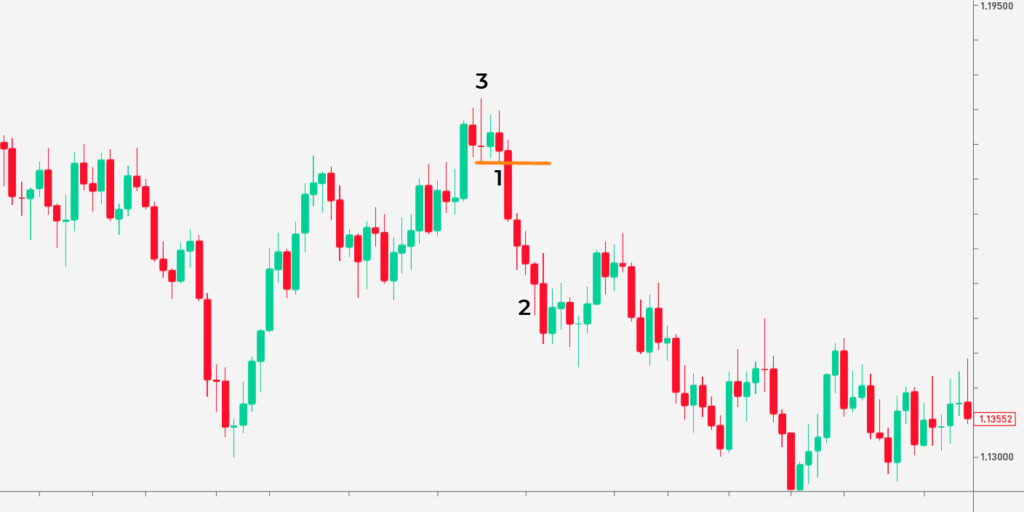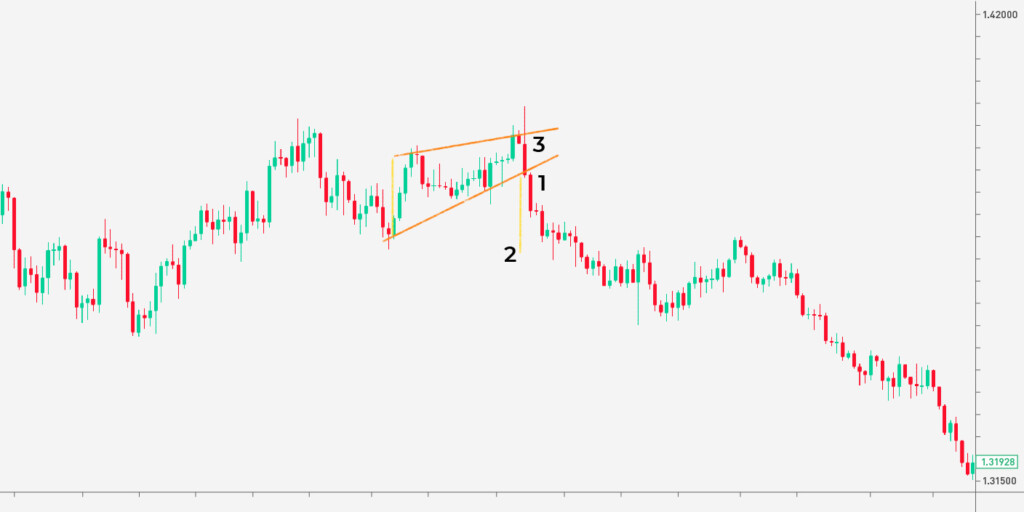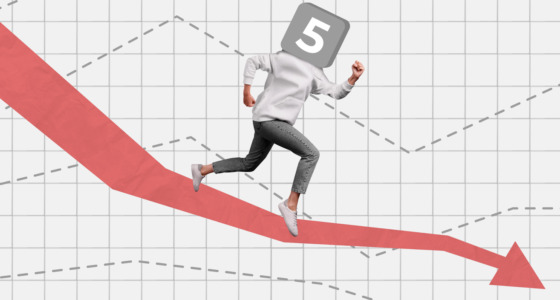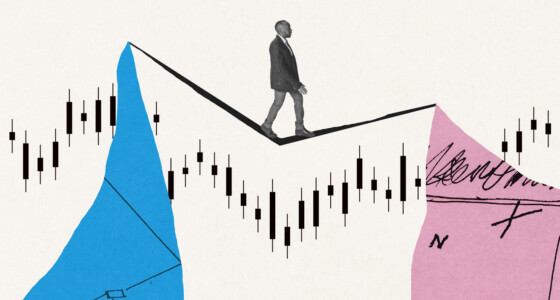

A pin bar is a single-candle pattern formed before the market reverses. Usually, a single candlestick is an unreliable pattern, but not in the case of the pin bar. Besides providing a reversal signal, this candlestick is widely used in different trading strategies and is combined with indicators and chart patterns. Read on to discover a pin bar trading strategy that works.
What is a pin bar in Forex?

Could you imagine that there are over 40 candlestick patterns? However, not all of them provide strong signals.
A pin bar is a candle with a small body and a shadow that’s at least twice as long as the body. The longer the tail, the more reliable the signal. The candlestick appears before a market reversal. A long upper shadow reflects the weakness of buyers in an uptrend. A long lower shadow shows sellers can’t drop the price further. The candlestick can be any color, but the signal is stronger if it’s green (bullish) in a downtrend or red (bearish) in an uptrend.
A pin bar trading strategy
There are several approaches to pin bar trading. The most common are mentioned below.
Strategy 1
Before you look for a pin bar pattern, determine the current trend. A pin bar with a long upper shadow will signal a price reversal only in a bullish trend. On the contrary, a pin bar with a long lower tail is reliable only in a downtrend.
- Step 1. Enter the market after a pin bar is formed. Measure the candle’s length from the highest to lowest prices.
- Step 2. Buy in a downtrend after the price breaks above the candle’s maximum. Sell in an uptrend when the price falls below the candle’s minimum (1).
- Step 3. Place a take-profit target at a distance at least twice the candle’s length (2).
- Step 4. A stop-loss order can be set on the maximum of a bearish pin bar (3) and on the minimum of a bullish pin bar.

Strategy 2
Another pin bar trading strategy is a pin bar plus a wedge. You can combine a pin bar with a wedge chart pattern. A wedge is a bilateral pattern, which means it provides continuation and reversal signals. However, as a pin bar is a reversal pattern, you need a wedge to be formed so that it signals a market reversal. In an uptrend, a rising wedge is a reversal pattern. In a downtrend, a falling wedge predicts a price reversal.
The wedge pattern is confusing. For instance, the rising wedge has higher highs and higher lows but signals a reversal, while the falling wedge has lower highs and lower lows. Still, higher highs are formed slower than higher lows in the rising wedge. Conversely, in the falling wedge, lower lows appear slower than lower highs.
- Step 1. Look for a formed wedge pattern. A selling opportunity will arise if there is a bearish pin bar near the wedge’s upper boundary in an uptrend. If a bullish pin bar is formed near the pattern’s lower boundary in a downtrend, it may predict a soon price rise.
- Step 2. Sell after the price falls below the wedge’s lower band (1). Buy when the price rises above its upper band.
- Step 3. A common take-profit size equals the pattern’s widest part (2).
- Step 4. A stop-loss level can be determined according to a 1:2 or 1:3 risk/reward ratio (3).


Tips for pin bar trading
A pin bar is a reliable tool, but it has some pitfalls. If you know them, you won’t be fooled by fake signals.
- Enter a trade only after the pin bar is fully formed.
- If a candle has a long upper shadow in a downtrend or a long lower shadow in an uptrend, it’s not a pin bar.
- Pin bars are more reliable on short-term timeframes as it’s not enough to have a single candlestick signal to trade for medium or long-term.
- Pin bars need confirmation. Whether it’s a reliable tool, you should validate its signal with at least an indicator, trendline, or pattern. As the pin bar is a reversal pattern, you can use divergences between the price and momentum indicators, add moving averages on a chart or look for reversal chart patterns, e.g., double/triple tops and bottoms, wedges, and head and shoulders.
Final thoughts
A pin bar is a reliable candlestick pattern. Moreover, it’s considered one of the best strategies for margin trading, while margin trading bears additional risks. Practice finding pin bars, and you may increase your success rate.







